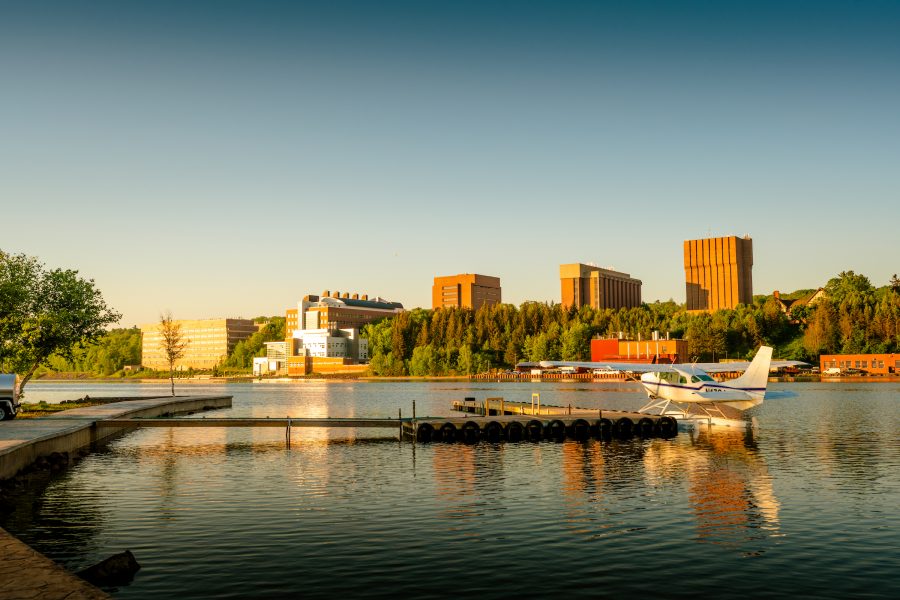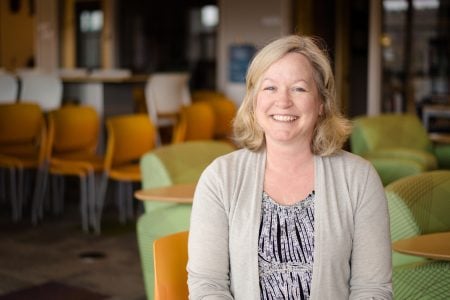
In an effort to nurture a regional innovation ecosystem and move more discoveries from the research lab to the real world, the National Science Foundation (NSF) has established a Great Lakes Innovation Corps Hub and Michigan Technological University plays a key role.
The 11-university Hub is led by the University of Michigan (U-M), and it’s one of five Hubs across the country announced Aug. 26 as NSF continues to evolve the I-Corps program. Launched in 2011, the NSF Innovation Corps, or I-Corps, trains scientists and engineers to carry their promising ideas and technologies beyond the university and into the marketplace to benefit society.
In addition to Michigan Tech and U-M, the Great Lakes Hub includes Purdue University, the University of Illinois Urbana-Champaign, the University of Toledo, the University of Minnesota, Iowa State University, Missouri University of Science and Technology, the University of Akron, the University of Chicago, and the University of Wisconsin-Milwaukee.
The Impact of I-Corps
Each university in the Great Lakes Hub already has a successful I-Corps program. Michigan Tech has been part of the NSF I-Corps Site program since 2015. Over the past five years, Michigan Tech’s I-Corps Site has helped introduce the entrepreneurial mindset to over 300 researchers, faculty, staff and students, and helped teams assess the commercial potential of nearly 150 technologies.

The Great Lakes I-Corps Hub aims to connect people at a large scale to increase the “effective density” of the Midwest’s innovation ecosystem. Mary Raber, Michigan Tech I-Corps principal investigator and chair of the Department of Engineering Fundamentals, said Michigan Tech researchers will be able to engage with the other members of the Hub and benefit from the extensive resources available throughout the Great Lakes region.
“Being invited to join the Great Lakes Hub is reflective of the success of Michigan Tech’s I-Corps Site program and the number of teams that have been selected to attend the National I-Corps program,” said Raber.
Other members of the Michigan Tech I-Corps team include Lisa Casper (Pavlis Honors College), Jim Baker (Office of the Vice President for Research), Michael Morley and Nate Yenor (Office of Innovation and Commercialization), and Jonathan Leinonen (College of Business).
“Michigan Tech is an integral part of the Great Lakes I-Corps Hub.”
“The Great Lakes region is home to many of the world’s leading research institutions, and many of our nation’s critical industries. Our goal with this I-Corps Hub is to leverage this intellectual depth to create a lasting economic impact on the region,” said Alec D. Gallimore, the U-M Robert J. Vlasic Dean of Engineering, the Richard F. and Eleanor A. Towner Professor, an Arthur F. Thurnau Professor, and a professor of aerospace engineering.
“We’ll do this by creating new businesses, by keeping our existing companies globally competitive and on the leading edge of technology, and by developing talent that not only has technical and cultural expertise, but also an entrepreneurial mindset,” he said.
The new Great Lakes Hub has set a goal of training 2,350 teams in the next five years and sending an additional 220 teams to a more in-depth National NSF I-Corps program.
In this way, I-Corps is helping to fill what Jonathan Fay, executive director of the U-M Center for Entrepreneurship, calls the “widening gap” between the cutting-edge research being done at universities and the development work of industry to turn research into societal benefit and economic gain.